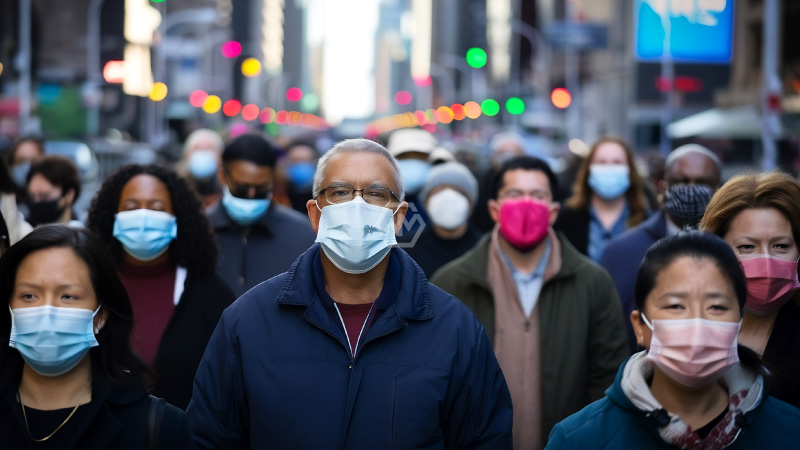- NB.1.8.1 now makes up over 10% of global Covid cases, dominant in Hong Kong and China.
- Detected in NSW, VIC, and WA, with test positivity rising in Australia.
- Experts urge vaccinations as winter approaches amid signs of increased transmissibility.
A newly emerging Covid-19 variant, NB.1.8.1, is gaining ground across Australia and globally, with the World Health Organization designating it as a variant under monitoring.
Although the subvariant is not linked to more severe disease, scientists like Associate Professor Lara Herrero warn that NB.1.8.1’s multiple mutations may make it more efficient at infecting human cells.
NB.1.8.1 Covid Variant Emerges as Winter Threat in Australia
The NB.1.8.1 subvariant has quickly shifted from a minor lineage to a significant global concern, now accounting for more than 10% of sequenced Covid-19 cases. It has become the leading strain in East Asia and is showing signs of becoming widespread in Australian states, including NSW, VIC, and WA.
In New South Wales, the positivity rate for Covid tests rose to 5.7%, an early indication that the virus is regaining ground. Wastewater analysis in Perth and lab testing in Victoria confirm the increasing local circulation of NB.1.8.1, prompting public health warnings.
Experts caution that while current data does not indicate increased severity, the subvariant’s rapid growth may overwhelm healthcare systems if cases spike. Enhanced transmissibility due to genetic mutations is thought to be a key driver of its spread.
Public health officials urge winter vaccination updates and caution in crowded or indoor spaces. With immunity from prior infections and vaccines fading over time, maintaining up-to-date protection is seen as the best defense.
As Australia enters the colder months, the rise of NB.1.8.1 is a reminder that Covid-19 remains an evolving threat, demanding continued vigilance and vaccination.
“It’s important to remember that immunity wanes over time, so staying up to date with your vaccinations is your best protection against severe illness.”
— Victoria Department of Health



